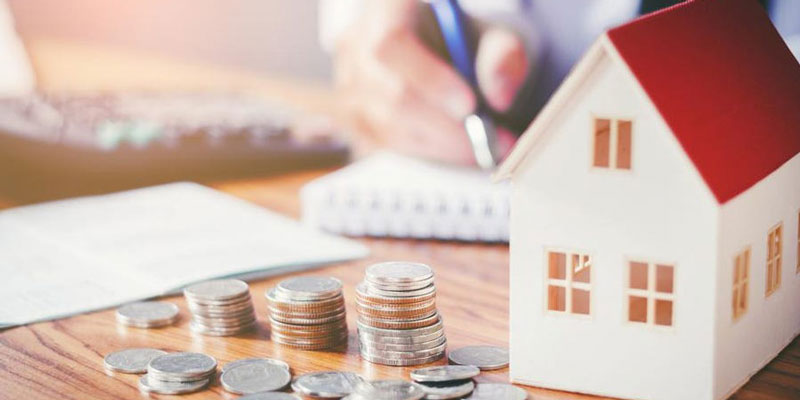Personal loans secured by collateral require the borrower to put up some kind of security to complete the transaction. Many personal loans are unsecured, and the lender will evaluate your financial history and score to see if you qualify. Secured personal loans are available for those with less-than-perfect credit. There are also several benefits of secured personal Loans that will be discussed in this article.
How do Secured Personal Loans work?

Secured personal loans are a sort of personal loan that can be borrowed for various personal purposes; however, to get the loan, the borrower must put up some form of collateral. The lender might take your collateral as payment if you cannot repay your debt.
Your secured personal loans’ eligibility criteria will be defined by the lender. There are loan providers who accept savings and certificate of deposit (CD) accounts as collateral. It's possible to utilize valuables such as works of art, automobiles, investments, and insurance policies to secure loans from other lenders. Mortgages, home equity loans, and vehicle loans are all examples of common types of secured loans.
Pros and Cons of Secured Personal Loans:

Secured personal loans come with several advantages and disadvantages. We have discussed most of them below:
Advantages of secured Personal loans:
It May Be Used for Any Legal Purpose.
You may put a secured loan toward anything you choose, as long as it's neither illegal nor risky. Common applications include paying off existing debt or upgrading one's house.
To Qualify for a Secured Loan, a High Credit Score Is Not Required.
You won't need a perfect credit score to qualify if you have collateral to back up your loan. If you have a low credit history, obtaining a secured loan may be more difficult for you; nevertheless, some lenders provide bad credit loans for those interested. So, securing financing is still an option; however, the interest rate may be cheaper for those with higher credit scores.
Even if you have poor credit, you have a better chance of acquiring a secured loan than an unsecured one. This is because secured Personal loans need collateral. This is so because the loan is collateralized by the property you own. Therefore, the lender faces less of a threat. When a borrower defaults on a loan, the lender has the right to take possession of the home and sell it to collect the debt.
When Borrowing Money, Higher Sums Are Often Available.
Lenders frequently give more money on secured loans than unsecured loans (e.g., personal loans). For the same reason, people prefer secured loans since they consider them safer.
Further, the amount you could borrow is inversely proportional to the amount of equity you have now in your house. Take the current market value of your home and subtract the amount still owed on your mortgage to get your equity. There are many online websites available that may give you a rough idea of what your home is worth.
You Might Be Able to Get Low-interest Rates.
Because of the collateral provided by your property, the interest rate on a secured loan is often lower than that on an unsecured loan. Borrowing costs might go down if this happens.
It’s Possible That the Payments Can Be Stretched Out Over a Longer Period.
If you get a secured loan, you can pay it back over several months or years. This may reduce your monthly payment amount. In addition, when you consolidate your loans, you'll have just one monthly payment.
Loan Repayments Can Be Used to Increase Credit Score.
In order to improve your credit score, it is essential that you complete all of your payments on time, every time. Being patient and persistent is required, specifically if you have a poor credit score to start with. However, in the long term, you will be better off and have easier access to credit.
Disadvantages of secured personal loans
When You Borrow More Money Than You Need, It Might Cause Financial Hardship.
Secured personal loans should start at $10,000; however, you should only borrow what you can comfortably repay. Don't go in over your head by taking on more debt than you need to.
If You Make Payments Irregularly, You May End Yourself Paying Extra Interest.
In most cases, a secured loan will provide us with more time to make payments. However, remember that this might lead to higher interest costs in the long run.
Remember that the best interest rates often go to individuals with the best credit.
If You Miss Payments or Apply for Credit Too Often, It Might Affect Your Credit Score.
When you apply for credit, it will appear as a hard inquiry on your credit report. Your credit score may temporarily drop as a result of this. It may discourage some lenders if you apply for multiple loans in a short time.
Advice: Before submitting an application, it's a good idea to utilize an eligibility checker to see how likely you are to be approved. This will not have any impact on your credit score because it is a "soft" inquiry into your credit history.
Before you commit to taking out the loan, it is essential to determine whether or not you will be able to pay it back comfortably. Failure to make or timely pay a bill will remain on your credit report for the full six years. Your credit rating and future access to credit may be negatively impacted.
If You Cannot Keep Up with Payments, Your Home May Be Repossessed.
If you are consistently late with your mortgage payments, you run the danger of losing your home to default. Make sure you can comfortably make the monthly installments for the whole loan term. If you're trying to figure out how much money you have, remember to account for unexpected costs like fixing your automobile.
There May Be Fees Associated with Early Repayment.
Some lenders (but not all) will hit you with a fee if you pay off your loan early. Lenders must disclose any fees associated with paying off a loan early upfront.




